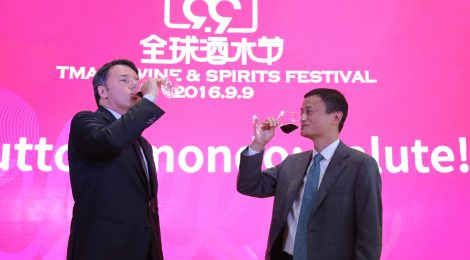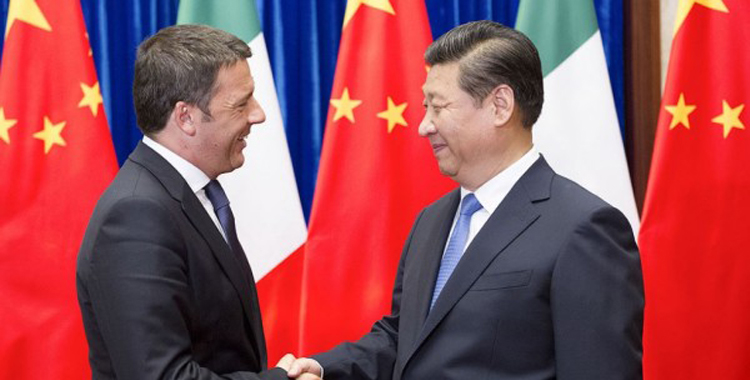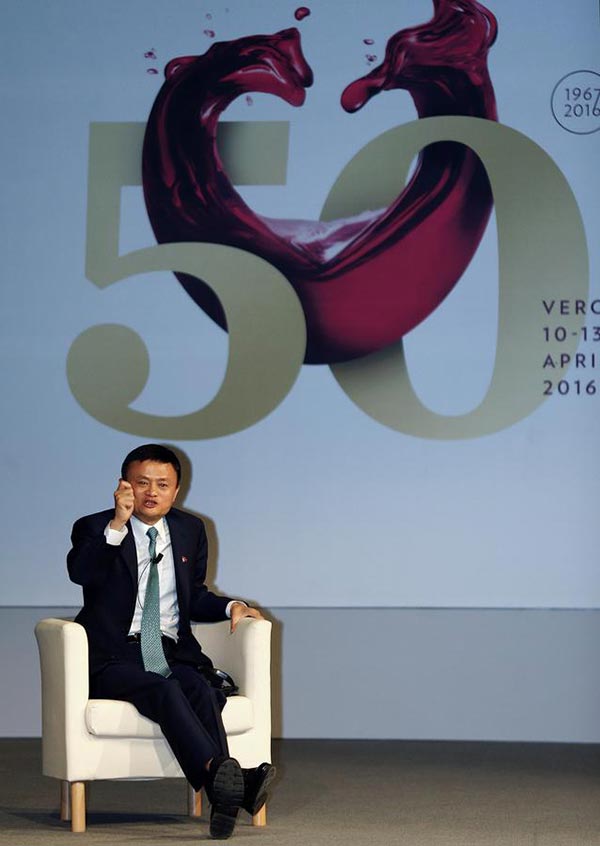
G20 and beyond: Culture, Economy and Wine
The eleventh summit of the Group of Twenty (G20) was held on 4–5 September in the city of Hangzhou, Eastern China. The mission to China of the Italian Prime Minister Matteo Renzi has been focused on culture and economy, also discussed during the bilateral meeting with Chinese President Xi Jinping. In the Italian agenda also meetings with tycoons of powerful Chinese groups – such as Suning, which took over Inter last June, China National Chemical, which now owns Pirelli, Bank of China, already present in Milan.
 The importance of culture in China-Italy relations was underlined during Renzi’s speech at Tongji University, in Shanghai, were the tenth anniversary of the Sino-Italian campus was celebrated: China and Italy both face the challenge of being proud of their glorious past whilst shaping their future. Renzi noted that the two countries are not linked solely through economic ties, but they rely on mutual friendship taking from in culture and ideals.
The importance of culture in China-Italy relations was underlined during Renzi’s speech at Tongji University, in Shanghai, were the tenth anniversary of the Sino-Italian campus was celebrated: China and Italy both face the challenge of being proud of their glorious past whilst shaping their future. Renzi noted that the two countries are not linked solely through economic ties, but they rely on mutual friendship taking from in culture and ideals.
Hangzhou, which is famed for its Western lake and historic buildings, has also become widely known for being the hometown of the e-commerce giant Alibaba. Founded in 1999 by Jack Ma, Alibaba Group Holding Limited is one of the largest online merchant in the world, also providing electronic payment services named Alipay – which is now entering Italy, Yu’e Bao – a provider of wealth management products that are sucking consumer savings out of China’s largest banks – as well as a shopping search engine and cloud computing services.
To reaffirm an earlier commitment made by Ma in April, when he joined Renzi in a panel in Verona to discuss Italy’s wine trade, the two met again in Hangzhou at the beginning of the week. China’s appetite for wine poses a huge opportunity for Italy, thus there is hope to boost the share of Italian wine sold on the Chinese e-commerce network. “Chinese people have a passion for all Italian things. Alibaba wants to be the gateway to China for Italian brands and small businesses,” Ma said during the joint conference in April. Currently Italian wine accounts for six percent of all wine on Alibaba’s e-commerce platforms, according to the company, though they are hoping to improve cooperation and bring that number up to an ambitious fifty percent.
 Being Italian wine makers mainly small and family-owned, it is not easy for them to reach out and sell on complex markets like China. According to Nomisma’s annual Wine Monitor report, out of a total of 55,000 national producers, almost 85 per cent make less than 10,000 bottles. Italy falls behind other countries, such as France and Australia, due to the fragmented nature of its producers, a lack of any national strategy on exports and high tax duties. Alibaba could represent the way to China for Italian small and medium enterprises, as Premier Renzi said: “Italy has lost too many opportunities in the e-commerce sector. The only way for small companies to keep up with global competition is to turn digital.”
Being Italian wine makers mainly small and family-owned, it is not easy for them to reach out and sell on complex markets like China. According to Nomisma’s annual Wine Monitor report, out of a total of 55,000 national producers, almost 85 per cent make less than 10,000 bottles. Italy falls behind other countries, such as France and Australia, due to the fragmented nature of its producers, a lack of any national strategy on exports and high tax duties. Alibaba could represent the way to China for Italian small and medium enterprises, as Premier Renzi said: “Italy has lost too many opportunities in the e-commerce sector. The only way for small companies to keep up with global competition is to turn digital.”
As a starting point, the first “Wine day” was launched by Alibaba on September 9, date chosen because the number nine – 九 jiu – in Chinese remind the word for alcohol – 酒jiu. The new online platform introduced by Alibaba for wine is meant to “help educate consumers about the culture of wine and to be a bridge between them and wine producers across the world,” and could mark a turning point for Italian wine in China.




